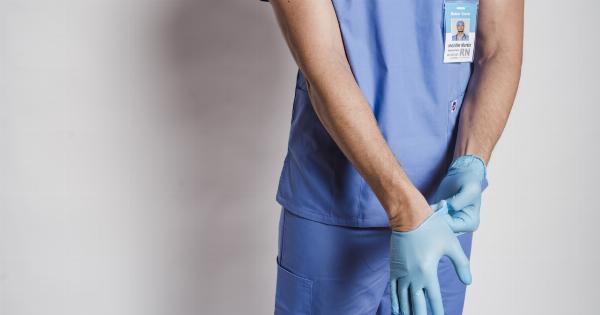The sun’s ultraviolet (UV) rays can have damaging effects on various parts of the body, including the eyes. Prolonged exposure to UV radiation can cause a range of eye conditions, from temporary discomfort to long-term damage.
While everyone should take precautions to protect their eyes from the sun, certain groups of people are particularly vulnerable to sun-related eye damage. In this article, we will explore these individuals to increase awareness and promote eye health.
1. Fair-Skinned Individuals
People with fair skin have less melanin, the pigment that provides natural protection against UV radiation. As a result, their eyes are more susceptible to damage caused by the sun.
Fair-skinned individuals should exercise extra caution when outdoors, especially during peak sun hours when UV radiation is strongest.
2. Children
Children’s eyes are still developing and are therefore more sensitive to the damaging effects of UV radiation. In fact, studies have shown that up to 80% of a person’s lifetime exposure to UV radiation occurs before the age of 18.
Parents and caregivers should prioritize sun protection for children, including wearing sunglasses with UV protection and wide-brimmed hats.
3. People with Light-Colored Eyes
Individuals with light-colored eyes, such as blue or green, have less natural protection against UV radiation compared to those with darker eyes. The lack of pigmentation makes their eyes more vulnerable to sun-related damage.
It is crucial for people with light-colored eyes to wear sunglasses that block 100% of UVA and UVB rays.
4. Outdoor Enthusiasts
Individuals who spend a significant amount of time outdoors, whether for work or leisure, are at higher risk of sun-related eye damage. Outdoor activities like hiking, fishing, and skiing can expose the eyes to intense UV radiation.
It is essential for outdoor enthusiasts to wear proper eye protection, such as UV-blocking sunglasses and sports goggles with adequate coverage.
5. Individuals with Certain Medical Conditions
Certain medical conditions can increase the risk of sun-related eye damage. For instance, individuals with a history of cataracts or macular degeneration may experience accelerated progression of these conditions due to prolonged UV exposure.
People with conditions like lupus, albinism, or retinal dystrophy also face higher risks. It is crucial for individuals with these conditions to consult their healthcare providers for personalized recommendations and eye protection strategies.
6. Medication Users
Some medications can make the eyes more sensitive to sunlight and UV radiation.
For example, certain antibiotics, diuretics, birth control pills, and nonsteroidal anti-inflammatory drugs can increase the risk of phototoxicity and other sun-related eye problems. It is essential for individuals taking these medications to understand the potential risks and take appropriate precautions, such as wearing sunglasses with UV protection.
7. Individuals with Outdoor Jobs
People whose jobs require them to spend long hours outdoors, such as construction workers, farmers, and lifeguards, face a higher risk of sun-related eye damage.
These individuals often have limited opportunities to seek shade or take breaks from the sun. It is crucial for outdoor workers to use protective eyewear and implement regular eye care practices.
8. Individuals in High-Altitude Locations
Those living or visiting high-altitude locations are exposed to higher levels of UV radiation. As altitude increases, so does the intensity of UV rays.
Therefore, individuals in such areas, like mountain climbers or skiers, are at an increased risk of sun-related eye damage. It is important for people in high-altitude regions to use appropriate eye protection and take extra precautions to safeguard their eyes.
9. Individuals with a History of Eye Surgery
People who have previously undergone eye surgery, such as cataract removal or LASIK, may have reduced natural protection against UV radiation. The surgical procedures can affect the eye’s ability to filter and block harmful UV rays.
Therefore, individuals with a history of eye surgery should be diligent in wearing sunglasses with proper UV protection.
10. Aging Population
As individuals age, the lenses of their eyes become less efficient in filtering UV radiation. This age-related decline in natural eye protection can increase the susceptibility to sun-related eye damage.
Additionally, older adults may have a higher prevalence of eye conditions, such as age-related macular degeneration (AMD), which can be exacerbated by UV exposure. Therefore, it is crucial for seniors to prioritize eye protection and regular eye check-ups.






























